Trump admits he wanted to assassinate Assad after chemical attacks
On the same day that he oversaw the historic signing of a peace deal between Arab and Israeli leaders, the US President revealed he had once considered assassinating this Middle Eastern tyrant.
News
Don't miss out on the headlines from News. Followed categories will be added to My News.
“I would’ve rather taken him out. I had him all set. Mattis didn’t want to do it. Mattis was a highly overrated general,” Mr Trump told Fox News.
“I would’ve rather taken him out. I had him all set. Mattis didn’t want to do it. Mattis was a highly overrated general,” Mr Trump told Fox News.
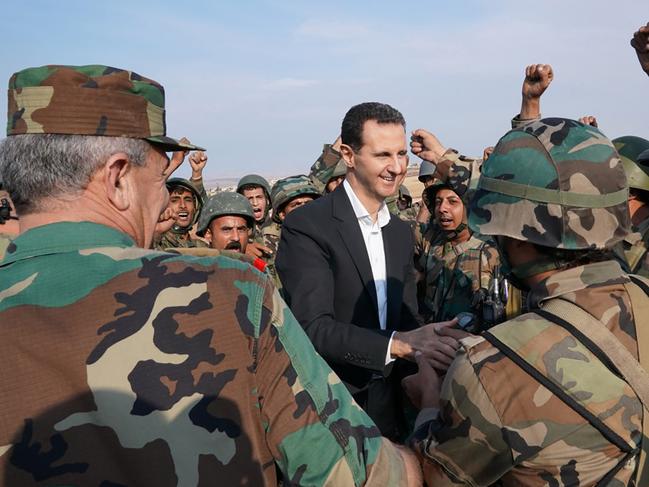
Mr Trump was asked about a passage in Watergate reporter Bob Woodward’s 2018 book, Fear, in which Mr Trump purportedly called Mr Mattis and said he wanted to kill Assad after the Syrian dictator launched a chemical attack on civilians in 2017.
“Let’s f---ing kill him! Let’s go in. Let’s kill the f---ing lot of them,” Mr Trump said, according to Woodward.
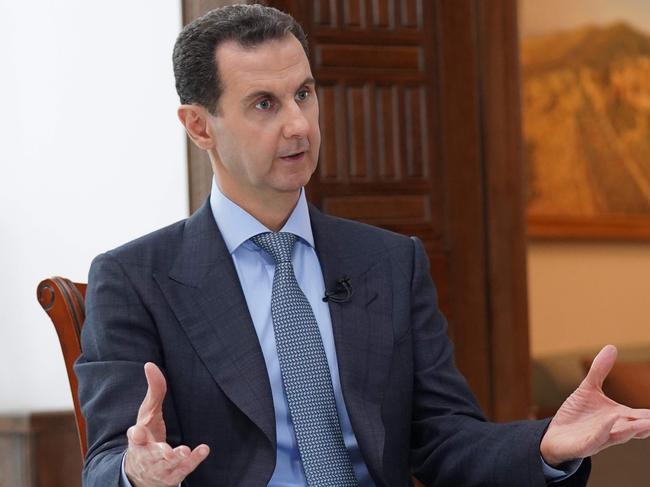
Mr Mattis told Mr Trump he would get on it but then told an aide “we’re going to be much more measured”. Eventually, his team developed a plan for an air strike on targets that Mr Trump eventually ordered.
Mr Trump told Fox Mr Mattis was a “terrible general” and a “bad leader” but said he didn’t regret not taking out Assad.
“I don’t regret that. I could have lived either way with that. You know I considered him certainly not a good person, but I had a shot to take him out if I wanted to, and Mattis was against it,” he said. “Mattis was against most of that stuff.”
Mr Trump said US attacks, launched after Mr Mattis resigned in 2018, took out ISIS leader Abu Bakr al-Baghdadi in 2019 and Iranian general Qassem Soleimani in 2020.
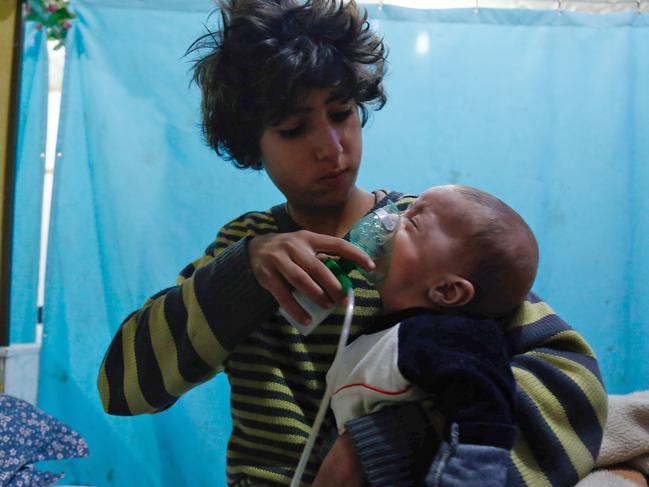
HISTORIC PEACE DEAL SIGNED IN WASHINGTON
President Trump on Tuesday heralded “the dawn of a new Middle East” as he hosted regional leaders for the signing of the “Abraham Accords” normalising relations between Israel and two Arab countries.
The foreign ministers of the United Arab Emirates and Bahrain joined Israeli Prime Minister Benjamin Netanyahu on the White House South Lawn to affirm their recent recognition of Israel’s statehood.
Bahrain and the UAE are the third and fourth Arab countries to establish diplomatic relations with Israel. The breakthrough also established direct commercial flights between Israel and the UAE.
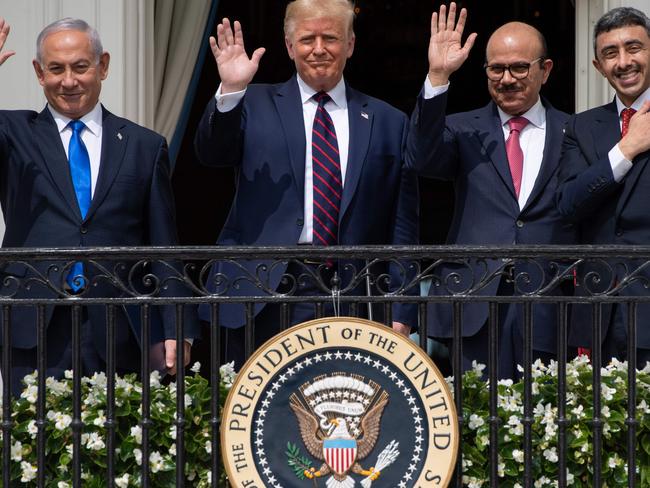
“We’re here this afternoon to change the course of history,” Mr Trump said from a balcony overlooking the South Lawn. “After decades of division and conflict, we mark the dawn of a new Middle East.
“In Israel’s entire history there have previously been only two such agreements. Now we have achieved two in a single month. And there are more to follow,” Trump said.
“These agreements will serve as the foundation for a comprehensive peace across the entire region, something which nobody thought was possible.”
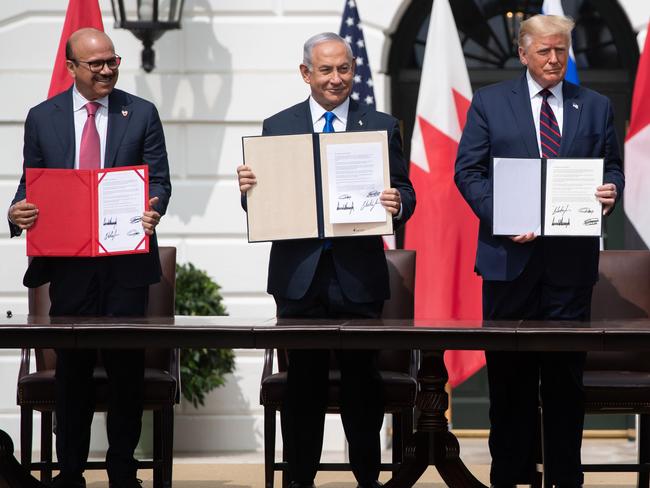
Mr Netanyahu said, “I am grateful to you, President Trump, for your decisive leadership … you’ve successfully brokered the historic peace that we are signing today — a peace that has broad support in Israel and in America [and] in the Middle East.”
The Israeli leader said that “history has taught us that strength brings security, strength brings allies, and ultimately — and this is something President Trump has said again and again — ultimately, strength brings peace.”
After addressing the crowd from the White House balcony, the four leaders sat at desks on the lawn to sign the deal, with national flags arranged behind them.
In addition to the bilateral agreements signed by Israel, the UAE and Bahrain, all three are signing a document dubbed the “Abraham Accords” after the patriarch of the world’s three major monotheistic religions.
“This day is a pivot of history,” Netanyahu said. “It heralds a new dawn of peace.”
Speaking to reporters before the document signing, Trump said “we’re very far down the road with about five countries — five additional countries.”
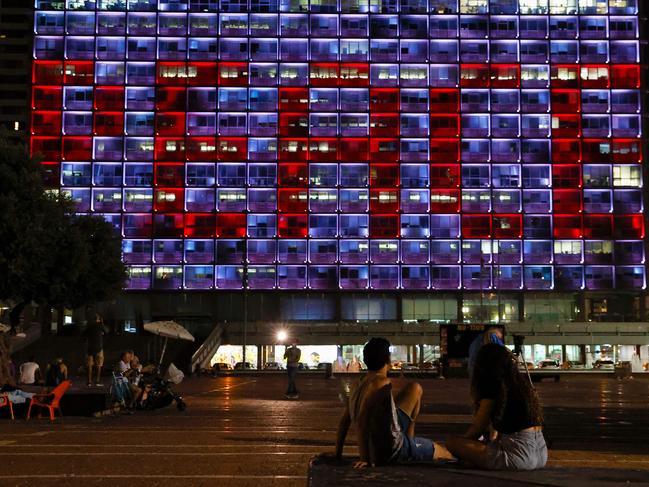
The developments are a major achievement for Trump, and even his Democratic presidential challenger, Joe Biden, praised the historic recognitions as “something positive.” In a Tuesday morning interview on “Fox & Friends,” Trump predicted that the Palestinians ultimately would make a deal as well.
“We have many others going to be coming in over a short period of time, and the Palestinians will ultimately come in, too,” Trump said.
A Norwegian official nominated Trump for the Nobel Peace Prize last week for his role in the UAE-Israel deal, before Bahrain joined.
Mr Trump often credits himself with wiping aside decades of disputes regarding Israel, which he said introduced new realism into the long-running conflict.
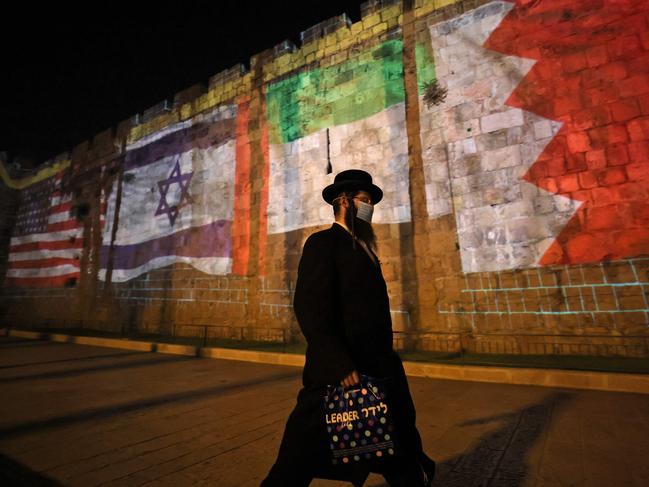
As president, Trump moved the US embassy in Israel to Jerusalem, throttled aid to the Palestinians and recognised Israeli sovereignty over the Golan Heights, a mountainous area seized from Syria in 1967 after it was used to shell Israeli areas.
Mideast peace efforts are led by Trump’s son-in-law and adviser Jared Kushner, who is Jewish and married to Ivanka Trump.
As part of the US-brokered normalisation of economic relations this month between Serbia and Kosovo, the Muslim-majority Kosovo also agreed to recognise Israel. Serbia agreed to move its embassy to Jerusalem.
Egypt was the first Arab country to recognise Israel, in 1979, followed by Jordan in 1994.
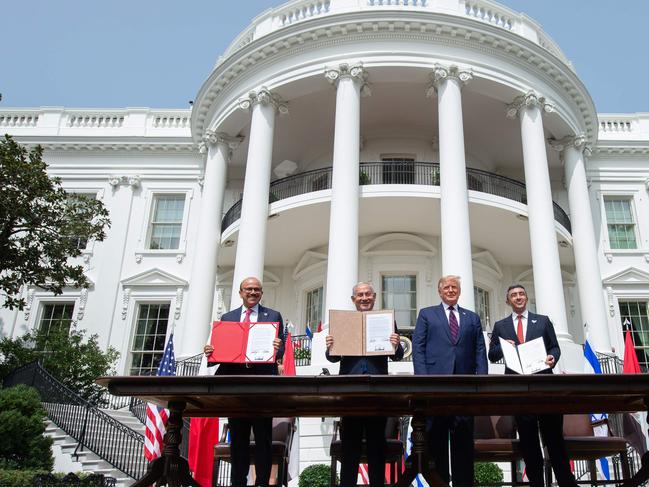
MORE NEWS
Victoria’s huge leap forward, fresh COVID fears in Europe
Aussie space race, MH370: More targets on China’s spying list
New COVID scam growing at 700 a day
Ahead of the ceremonial event Tuesday, Trump met privately with the Bahraini and UAE diplomats and with Netanyahu. He presented the Israeli leader with a golden key that he said was a “key to the White House” and said he anticipated a “very fair” US-Iran deal after the election.
New York Rep. Lee Zeldin, one of just two Jewish Republicans in Congress, told The Post he attributes the new deal, in part, to shared concern about “Iranian aggression” and the fact that the Trump administration “made very clear to these Arab countries it is the highest priority to the United States to strengthen the relationship with Israel.”
Last week on the anniversary of 9/11, Trump linked the diplomatic developments with his drawdown of US troops in Afghanistan, Iraq and Syria.
“The sand was loaded up with blood. And now you’re going to see that a lot of that sand is going to be loaded up with peace,” Trump said.
Originally published as Trump admits he wanted to assassinate Assad after chemical attacks
